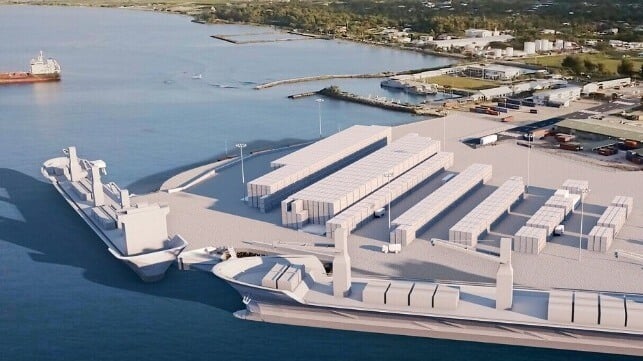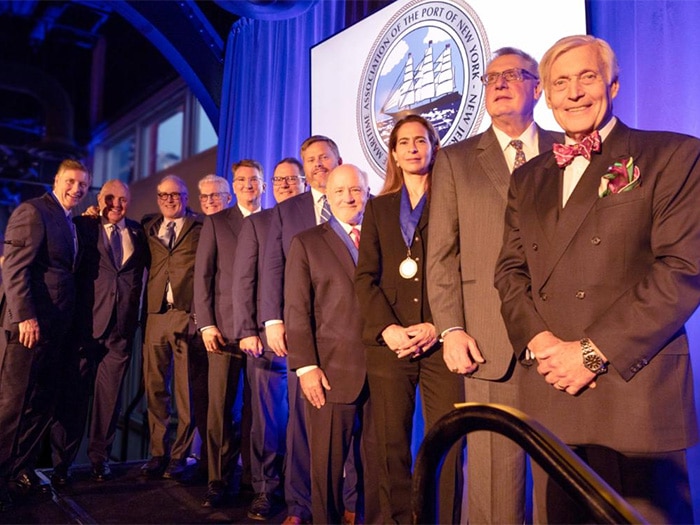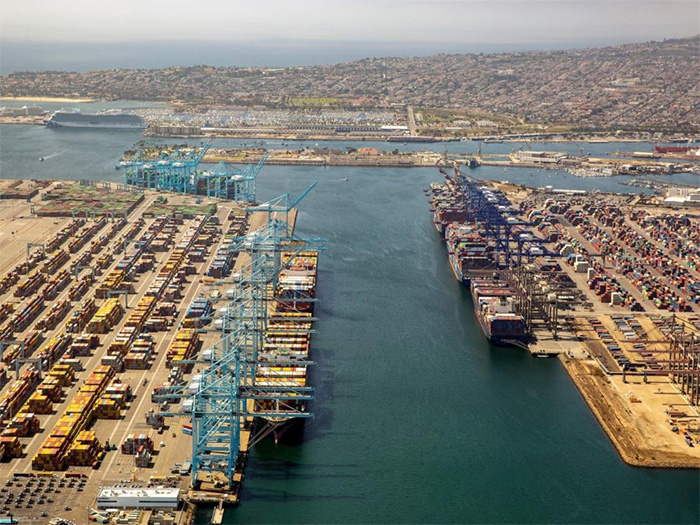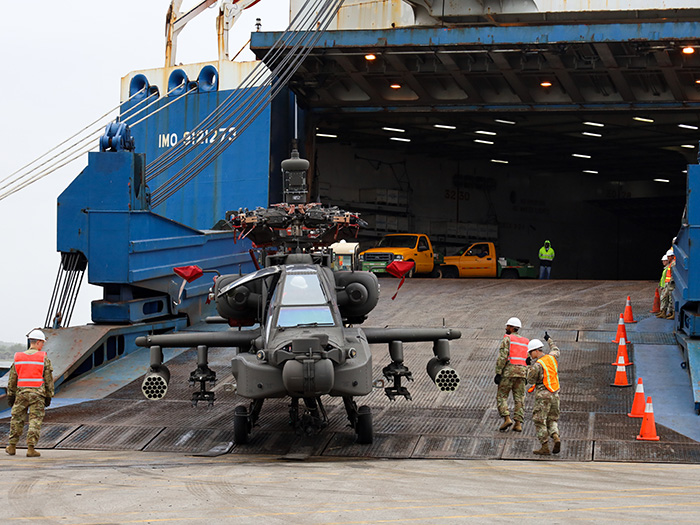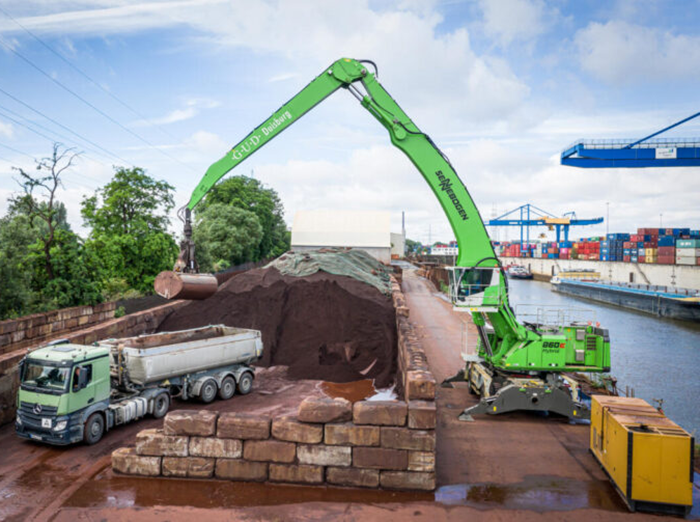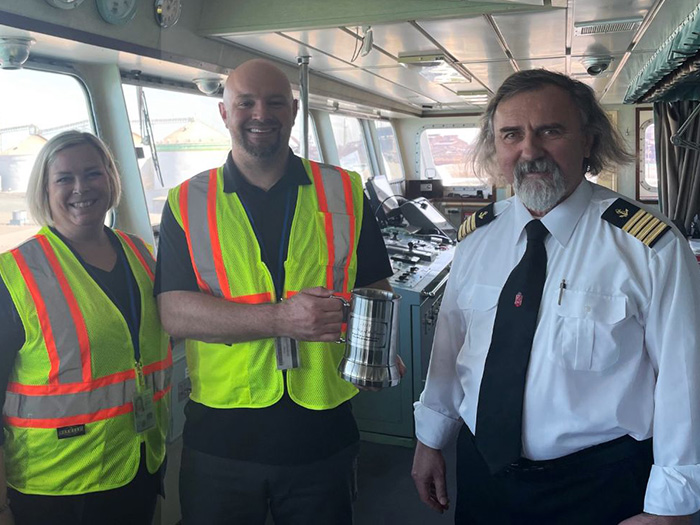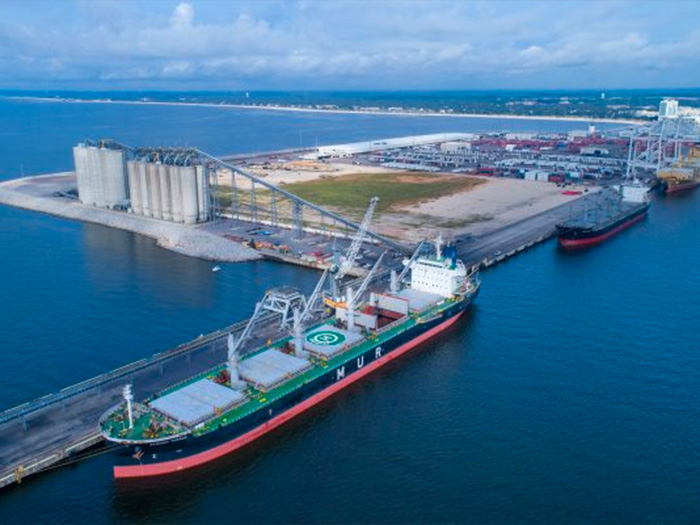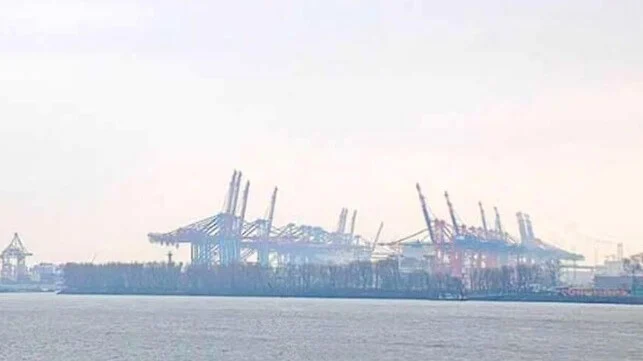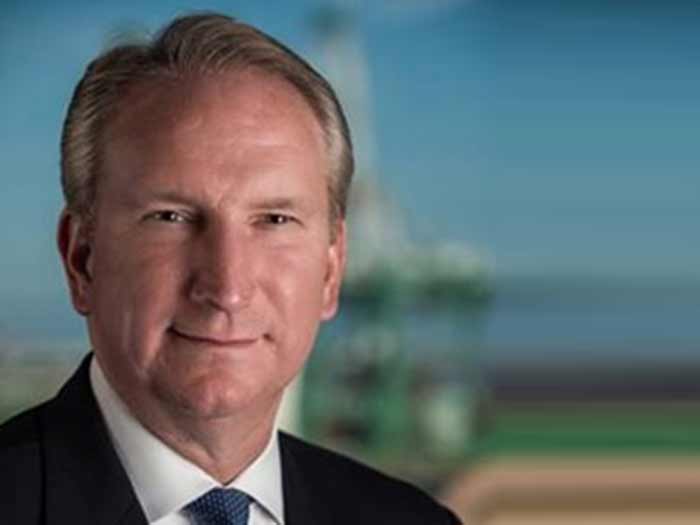
Executive Director Gene Seroka
, Executive Director of the Port of Los Angeles, joins Yahoo Finance’s Akiko Fujita to discuss the wave of imports coming in as retailers across the country look to restock before the holiday season.
AKIKO FUJITA: Well, it has been a busy month for the country’s largest port. The Port of Los Angeles saw a 13% spike in incoming cargo volume last month, leading to its best September in history. And it’s now bracing for a very busy holiday season. Let’s bring in the executive director of the Port of LA, Gene Seroka. He is joining us today from Los Angeles.

And Gene, let’s start by talking about just the kind of volume that you have seen, a huge spike in September. But really, this is a broader economic recovery picture that you have been seeing play out in your ports over the last several months.
GENE SEROKA: Good morning. What we’re seeing really is replenishment of finished goods going to the omnichannel distribution network, which leads us to big box retailers, home improvement stores, and others who have remained open through the emergency orders during this pandemic. And it is truly a one way trade. Exports here through the Port of Los Angeles have been down 22 out of the last 23 months.
AKIKO FUJITA: Gene, how much of this is the result of playing catch-up? You know, we talked back in March and April about just the backlog or really the halt that we saw at some of these ports as we saw countries close up their borders, particularly out of China. How much of what you’re seeing right now is sort of a catch-up period, trying to catch up with that demand? How much do you think this says about the demand moving forward?
GENE SEROKA: Well, two questions there. One, I really don’t think it’s catch-up. Year-to-date, we’ve had 66 canceled sailings. In fact in Q1 and Q2, the canceled sailings represented about 20% of our scheduled arrivals. We simply weren’t buying as much. And in addition to what Dr. [? Izradi ?] said, we’re not going to ball games. We’re not going to the movies. We’re not flying or going on cruises. We’re buying.
And we’re buying from our retail stores that have remained open. We’re buying an awful lot on the internet today. What we see going forward is that the month of October will also be very large in this same vein of replenishing the omnichannel distribution network with probably about 950,000 container units, which would be one of the best all-time for a monthly receipt.
And then the month of November, which typically starts to taper off, will be above the 800,000 container unit threshold. So I see this run going through about the beginning to second week of December. And then we’ll reassess from that point.
AKIKO FUJITA: If you’re talking about 950,000 containers in October alone, what has that meant for your operations there at the Port of Los Angeles? How are you processing everything?
GENE SEROKA: We’re busy. But, again, where the stress comes from is this one-way trade increase. We’re– on the export side, we continue to wane. So it puts extra pressure on the service providers of rail and truck, the liner shipping companies, and the port itself. Because of COVID-19 health protocol, we see less folks going onto the job in our warehouses.
We have to social distance more. Less staffing is at those locations on a daily basis, simply because you can’t get the same numbers working at that distance. And with all of this, we’re seeing dwell times on the shipments go up, whether it be at the warehouse, at the store, or even on our terminal tarmac. Because we’re trying to push out as much cargo as we possibly can. So emphasizing round trip or dual transactions with trucks, quick loads to our rail system are all part of what we’re experiencing today.
AKIKO FUJITA: What about staffing overall? I mean, you talked about the need to social distance. You’ve got on the one hand a good problem, because you have so much cargo coming in. It’s one of your busiest months. And yet, you’ve also got to be mindful of the public safety and health elements. How is that complicating your operations?
GENE SEROKA: Well, we’ve been so fortunate. When the emergency orders came down back in March, I was so heartened to see all of our supply chain members, including Longshore Labor with the International Longshore and Warehouse Union, come together and put in place safety protocols, whether it’s cleaning and sanitizing equipment for the handoff to the next shift, how we physically distance, what we do to prepare, whether it be telecommuting or working on the docks.
And we have been very fortunate because everyone has followed these protocols. We’ve had minimal number of folks go out sick and absolutely no disruption in our operations due to COVID-19.
AKIKO FUJITA: And Gene, you’ve really had a front row seat here in the disruption to the economy as a result of the pandemic but also the recovery element. When you look at how things have picked up at the port, from your perspective, what does that say about where we are in the recovery?
GENE SEROKA: Now, that’s a really good question. Again, we see this and what our retailers and other customers are telling us as replenishment. There’s also a bit of an earlier start to the holiday shopping season. Earlier this week was with Amazon Prime days on Tuesday and Wednesday. Folks have a little bit more time. Again, we’re not traveling. We’re not getting on airplanes or going out to events. We’re buying.
Now what it also says is that, as we get through this wave of imports, we expected this. Because we said it would be about three times that we’d experience the import waves. We’re hustling empty containers back at all-time record numbers to catch the next series of imports.
So, again, I think one thing that’s going to be important for employment and our economy in general, getting people back to work who have export jobs, whether they be on the agricultural side, manufacturing broadly, the automotive sector, and tiered suppliers. Export jobs in the United States pay on average 17% more than jobs in other segments. This will be a very important piece that we add to this overall recovery puzzle.
AKIKO FUJITA: And when you talk about that one way traffic that’s coming in in terms of imports, where are you getting that from? Is it largely China?
GENE SEROKA: On the import side, about 60% of the products coming in right now are from China, even with the tariffs and the taxation that’s been placed on the American importing companies. Quite frankly, we’re the fastest gateway from Asia to the middle part of this country. And with a large consumer base, especially here in Southern California, with more than 20 million of us buying every day, it is the quickest way to replenish this inventory and work our way through the omnichannel network.

At another hand Los Angeles Harbor Commissioner Lucia Moreno-Linares has been nominated for the Los Angeles Business Journal Volunteer of the Year award for 2020 In recognition of years of her service to the community
The Volunteer of the Year award is part of the Journal’s annual Women’s Leadership Series and Awards, which honor women of outstanding achievement in the business community. The volunteer award recognizes individuals who generously donate their time and support to better the Los Angeles community and/or their workplaces.
The publication will announce the final winner at a virtual award ceremony on Oct. 21.
Moreno-Linares was appointed to the Los Angeles Board of Harbor Commissioners—a volunteer position—by Mayor Eric Garcetti in 2017. She also currently serves as chair of the Wilmington YMCA Council of Managers, and on the boards of the L.A. County Small Business Commission and the District Business Commission. She previously held volunteer positions with the Wilmington Neighborhood Council, Wilmington Chamber of Commerce, Harbor Watts Economic Development Corporation and Wilmington Senior Citizen Center Task Force. She founded Wilmington Business Watch and Vecinos Unidos Neighborhood Watch in the early 1990s.
Moreno-Linares began her career at Family Federal Credit Union (FFCU) in Wilmington in 1983, an institution focused on serving the community, particularly immigrants, low-wealth families and small businesses, and became its CEO 1992. When FFCU merged with Self-Help Federal Credit Union in 2016, she served as branch manager there until her retirement in 2018. Moreno-Linares was born in Baja California Sur, Mexico, and immigrated with her family to the United States in 1971.
The Port of Los Angeles remains open with all terminals operational during the COVID-19 pandemic. North America’s leading seaport by container volume and cargo value, the Port of Los Angeles facilitated $276 billion in trade during 2019. San Pedro Bay port complex operations and commerce facilitate one in nine jobs across the counties of Los Angeles, Orange, Riverside, San Bernardino and Ventura.
press release





